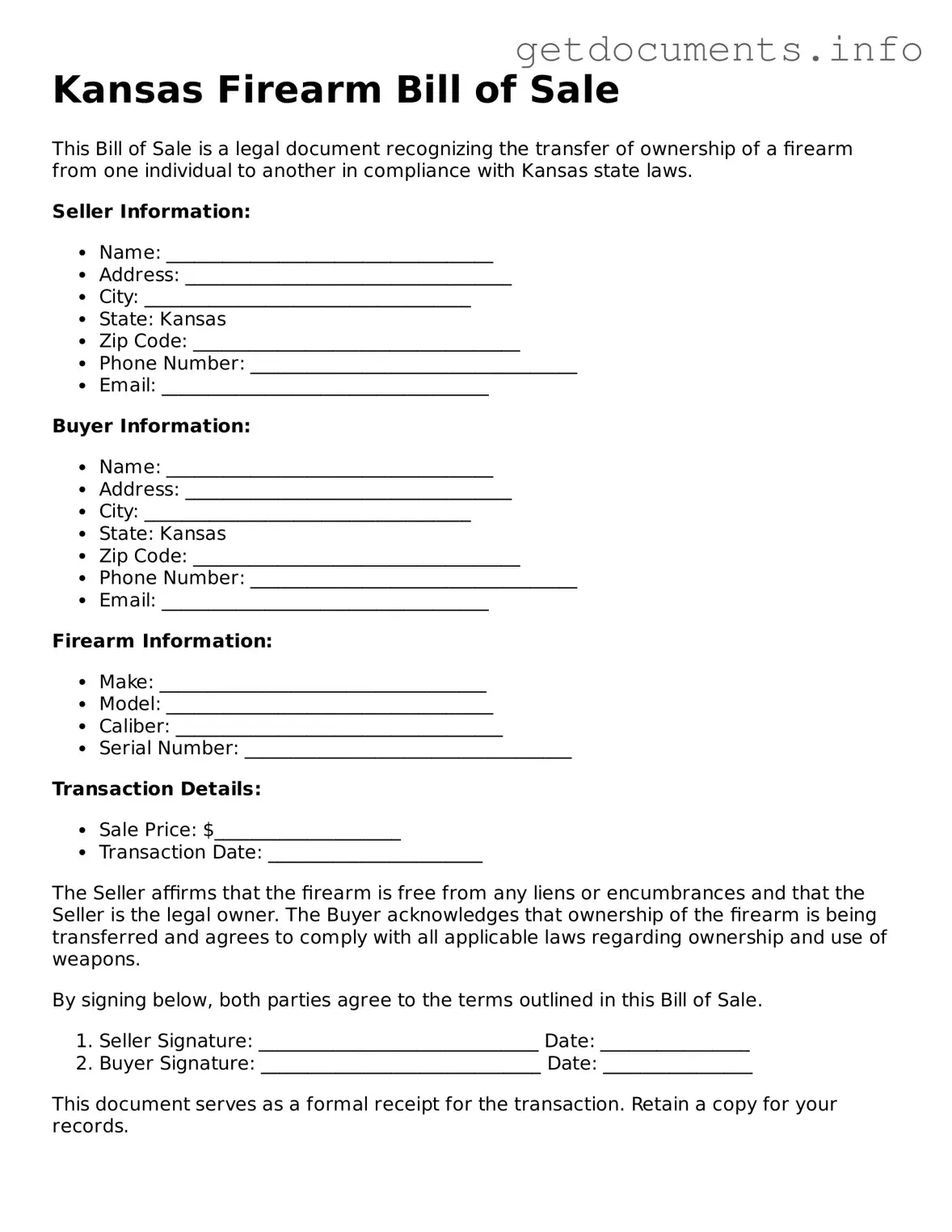Free Firearm Bill of Sale Template for Kansas
The Kansas Firearm Bill of Sale form is a legal document that facilitates the transfer of ownership of a firearm between parties in the state of Kansas. This form serves as proof of the transaction and outlines essential details such as the buyer and seller's information, the firearm's description, and the date of sale. Ensuring that this form is properly filled out is crucial for both parties involved in the transfer.
To complete the transaction, fill out the form by clicking the button below.
Access Firearm Bill of Sale Editor

Free Firearm Bill of Sale Template for Kansas
Access Firearm Bill of Sale Editor
Got places to be? Complete the form fast
Fill out Firearm Bill of Sale online and avoid printing or scanning.
Access Firearm Bill of Sale Editor
or
⇩ PDF File
